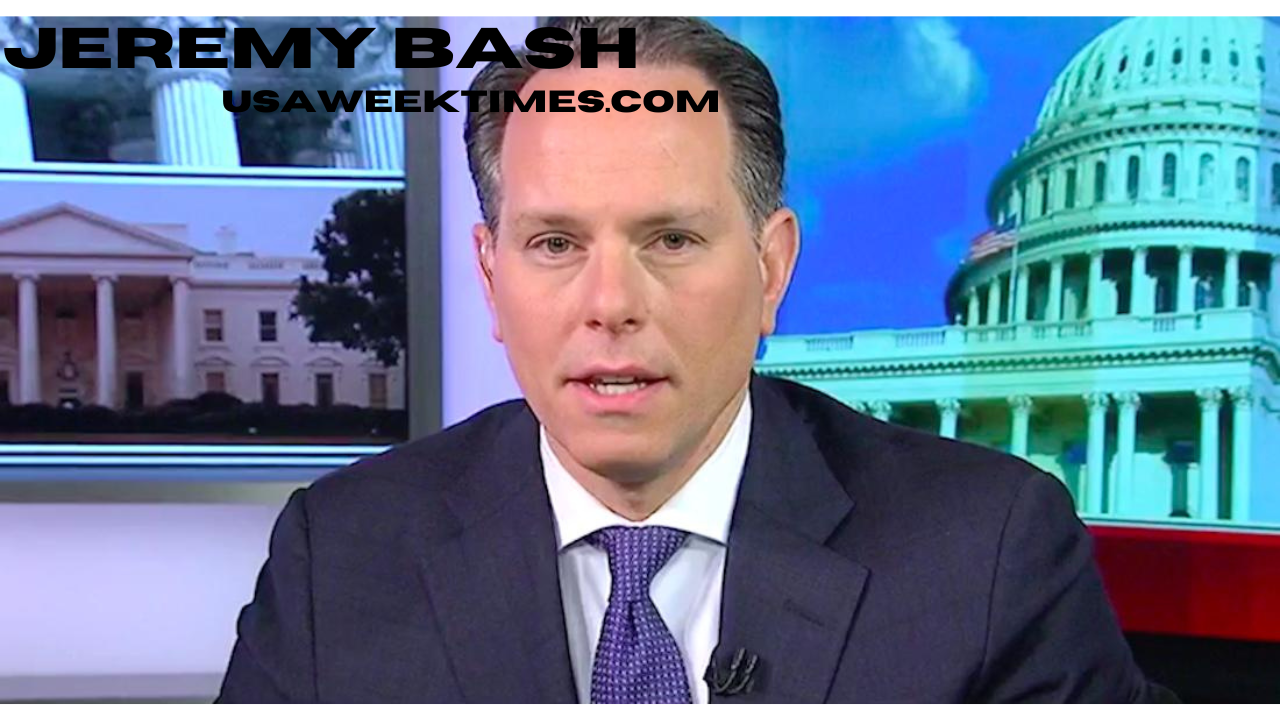Jeremy Bash: A Comprehensive Look at the Life, Career, and Impact of a Key Figure in U.S. National Security and Politics
Introduction
Jeremy Bash is a prominent figure in the realm of U.S. national security, intelligence, and politics. With a career spanning across various significant positions, including serving as the Chief of Staff at the U.S. Department of Defense and the Central Intelligence Agency (CIA), Bash has become a well-recognized name in both governmental and private sector circles. His expertise in defense policy, crisis management, and intelligence analysis has made him a sought-after commentator, advisor, and thought leader. This article delves into the life and career of Jeremy Bash, exploring his professional journey, key contributions, and lasting impact on national security and U.S. politics.
Early Life and Education
Jeremy Bash was born in 1971 in Washington, D.C., and raised in a family deeply committed to public service. He attended Harvard College, where he graduated magna cum laude with a degree in government. His time at Harvard allowed him to build a strong foundation in political science, a discipline that would serve him well in his future career. After completing his undergraduate studies, Bash attended Georgetown University Law Center, where he earned his law degree.
His education at these prestigious institutions played a crucial role in shaping his understanding of government, law, and policy, all of which became central themes throughout his career. Notably, Bash’s early academic work laid the groundwork for his interest in national security issues, particularly those related to the intelligence community, defense policy, and the intersection of law and government.
Rise to Prominence in Government
Jeremy Bash’s professional career began with a strong foundation in law and policy. After completing his studies, he went on to work as a law clerk for Judge Henry H. Kennedy Jr. of the U.S. District Court for the District of Columbia. This position offered him invaluable insight into the legal workings of the federal government. Following this, Bash became an associate at the prestigious law firm of WilmerHale, where he worked in litigation and corporate law.
Bash’s transition to government work came in the early 2000s when he became involved in national security issues. His first significant government role was as Counsel to the U.S. House of Representatives Permanent Select Committee on Intelligence, where he worked on issues related to the intelligence community and national security. This marked the beginning of his career in defense and intelligence policy, which would later define his public service legacy.
In 2009, Bash’s career took another significant leap when he was appointed as Chief of Staff to the U.S. Department of Defense under then-Secretary of Defense Leon Panetta. In this capacity, Bash played a key role in managing the department’s operations and coordinating high-level policy decisions. His responsibilities included overseeing defense strategy, resource allocation, and assisting in critical decision-making processes during major military operations.
Key Role at the CIA
One of the pivotal moments in Jeremy Bash’s career came in 2011 when he was appointed as the Chief of Staff at the Central Intelligence Agency (CIA). In this position, Bash worked closely with then-CIA Director Leon Panetta, providing support for intelligence operations and overseeing the agency’s overall strategy. During his tenure at the CIA, Bash was deeply involved in the operational and organizational decisions that would shape the intelligence community’s response to emerging threats.
Bash’s leadership at the CIA was particularly important during a period of heightened global instability, including the Arab Spring, the rise of ISIS, and ongoing counterterrorism efforts. Under his leadership, the CIA played a critical role in intelligence gathering and analysis, contributing to the successful operations that targeted key terrorist figures and disrupted several high-profile plots. His work at the CIA helped strengthen the agency’s ability to respond to rapidly changing threats and to provide timely intelligence to policymakers.
Contributions to U.S. National Security
Jeremy Bash’s career is marked by his strong contributions to U.S. national security policy. Throughout his tenure at the Department of Defense and CIA, he demonstrated a unique ability to understand complex security challenges and devise strategies that would mitigate risks to the U.S. and its allies. He was deeply involved in several major defense and intelligence initiatives, including the Pentagon’s efforts to combat terrorism, cybersecurity threats, and nuclear proliferation.
Bash’s leadership in military and intelligence operations was instrumental in reshaping U.S. counterterrorism efforts. He contributed to key policy changes related to military engagement in the Middle East and oversaw initiatives that were designed to enhance coordination between the Department of Defense and intelligence agencies. His work helped create a more integrated approach to national security, which allowed for faster decision-making and more effective responses to global crises.
Another critical aspect of Bash’s contributions was his focus on ensuring the safety of U.S. personnel and civilians in conflict zones. As Chief of Staff at both the Department of Defense and the CIA, Bash played a role in coordinating evacuations, securing diplomatic missions, and ensuring that U.S. assets were protected during times of international unrest. His ability to handle high-pressure situations and manage the intricacies of national security during crises earned him recognition from both his peers and policymakers.
Post-Government Career and Advisory Roles
After leaving government service, Jeremy Bash transitioned to the private sector and became a prominent figure in the world of defense consulting, policy analysis, and political commentary. He founded the consulting firm Beacon Global Strategies, where he serves as a managing director, advising clients on matters of defense, intelligence, and national security. His expertise has been sought after by major corporations, government entities, and international organizations.
In addition to his consulting work, Bash has remained an influential voice in the public discourse on national security issues. He regularly contributes to various media outlets, providing expert analysis on security-related matters. His insights have been featured on major news networks, including NBC News, where he often offers his perspective on developments related to U.S. foreign policy, military strategy, and intelligence operations.
Bash also serves on the boards of several organizations dedicated to national security and intelligence, including the Center for Strategic and International Studies (CSIS). Through these roles, he continues to shape discussions surrounding the future of U.S. national security policy and the evolving threats facing the nation.
Jeremy Bash’s Legacy in U.S. Politics and National Security
Jeremy Bash’s impact on U.S. politics and national security is undeniable. His leadership in both the Department of Defense and the CIA helped shape the direction of U.S. defense and intelligence policies during critical times. His ability to manage large-scale operations, his strategic foresight, and his unwavering commitment to national security have left an indelible mark on the institutions he served.
Bash’s legacy extends beyond his time in government. His contributions to shaping U.S. military and intelligence strategy continue to influence discussions on how best to approach national security challenges in an increasingly complex and volatile world. His career serves as a model for those seeking to navigate the intersection of law, policy, and national defense.
In conclusion, Jeremy Bash’s life and career are a testament to his dedication to public service and the security of the United States. From his early days as a law student to his leadership in the Department of Defense and CIA, Bash’s contributions have played a significant role in shaping U.S. national security policy. His expertise continues to be sought after by policymakers, analysts, and business leaders, ensuring that his influence will be felt for years to come




